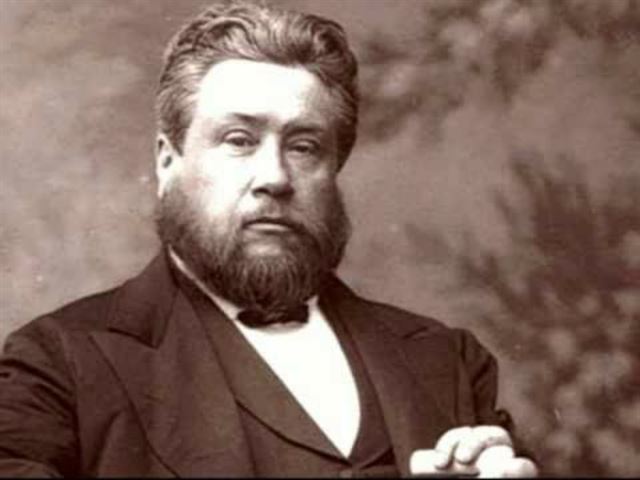1834-1892
LETTER FROM C. H. SPURGEON TO A. G. FULLER
COMMENDING ANDREW FULLER (as cited here)
"In 1831, Andrew Gunton Fuller, the son of Andrew Fuller (1754-1815), gathered together all of his father’s writings and published them in five volumes. This set was later revised by Joseph Belcher and published in three volumes by the American Baptist Publication Society in 1845.(1) These sets had included a biographical memoir of Fuller by A. G. Fuller. Near the end of his life, the younger Fuller published a full length biography of his father in the series “Men Worth Remembering.” Apparently, A. G. Fuller sent a complimentary copy of his Andrew Fuller(2) to London’s greatest preacher of the day, Charles Haddon Spurgeon. The following letter of appreciation from Spurgeon survives. From this letter we learn of Spurgeon’s regard for Andrew Fuller as a theologian.
Venerable Friend,
I thank you for sending me your Andrew Fuller. If you had lived for a long time for nothing else but to produce this volume, you have lived to good purpose.
I have long considered your father to be the greatest theologian of the century, and I do not know that your pages have made me think more highly of him as a divine than I had thought before. But I now see him within doors far more accurately, and see about the Christian man a soft radiance of tender love which had never been revealed to me either by former biographies or by his writings.
You have added moss to the rose, and removed some of the thorns in the process.
Yours most respectfully,"
C. H. Spurgeon
I too, like Spurgeon, consider Fuller one of our greatest theologians. Yet, also like Spurgeon, I do not agree with Fuller on several points, being more in line with Abraham Booth, a contemporary of Fuller. I do not agree with Fuller that one is regenerated before faith, nor did Booth. I also agree with Booth on the extent of the atonement rather than with Fuller.
Said another:
"Charles Haddon Spurgeon acknowledged that he was greatly helped by the writings of Fuller to articulate both the sovereignty of God and the free offer of the gospel. He considered him as the greatest theologian of the nineteenth century." (DR. P. DE VRIES - here)
In my posting on Abraham Booth and Andrew Fuller (here) I cite Spurgeon words regarding Booth.
Spurgeon said this about Booth:
"I have read with some degree of attention a book to which I owe much for this present discourse—a book, by Abraham Booth, called "Glad Tidings to Perishing Sinners." I have never heard any one cast a suspicion upon Abraham Booth's soundness; on the contrary, he has been generally considered as one of the most orthodox of the divines of the last generation. If you want my views in full, read his book. If you need something more, let me say, among all the bad things which his revilers have laid to his door, I have never heard any one blame William Huntingdon for not being high enough in doctrine. Now, William Huntingdon prefaced in his lifetime a book by Saltmarsh, with which he was greatly pleased; and the marrow of its teaching is just this, in his own words, "The only ground for any to believe is, he is faithful that hath promised, not anything in themselves, for this is the commandment, That ye believe on his Son Jesus Christ." Now, if William Huntingdon himself printed such a book as that, I marvel how the followers of either William Huntingdon or Abraham Booth, how men calling themselves Calvinistic divines and high Calvinists, can advocate what is not free grace, but a legal, graceless system of qualifications and preparations. I might here quote Crisp, who is pat to the point and a high doctrine man too. I mention neither Booth nor Huntingdon as authorities upon the subject, to the law and to the testimony we must go; but I do mention them to show that men holding strong views on election and predestination yet did see it to be consistent to preach the gospel to sinners as sinners—nay, felt that it was inconsistent to preach the gospel in any other way." (here)
Let us be thankful for both Fuller and Booth and the contributions they made to Baptist life.

No comments:
Post a Comment